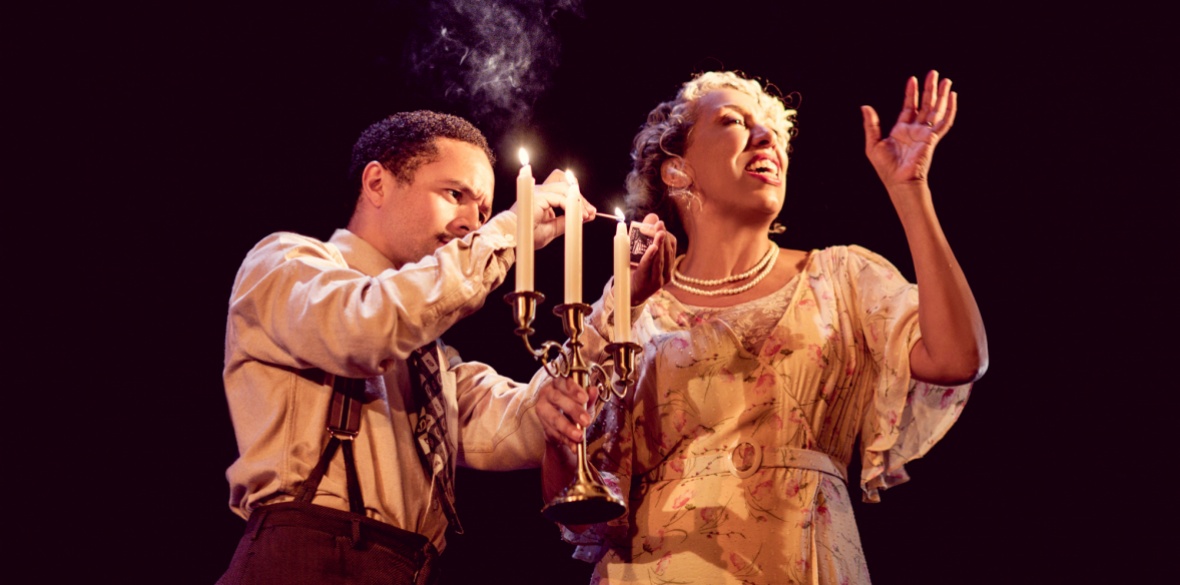This is the last article you can read this month
You can read more article this month
You can read more articles this month
Sorry your limit is up for this month
Reset on:
Please help support the Morning Star by subscribing here
The Glass Menagerie
Arcola Theatre, London
ALL coquettish wiles and smiling scheming, Lesley Ewen commands the stage as Amanda Wingfield in this tricky old Tennessee Williams classic. It’s a huge performance at the play’s epicentre.
Her desire to raise her children beyond their abilities or ambition in the austerity-stricken St Louis of 1937 creates unbearable tension and the resultant matriarchal bullying, played at this pitch, can exhaust an audience.
Her every feature is florid, her dialogue a torrent of words. Even the Magic Flute’s Queen of the Night seemed to pause and breathe more often.
In contrast her daughter Laura (a sweet debut from Naima Swaleh) is crippled by shyness. All hunched anxiety and downcast, limpid eyes, she can hardly stand up in the face of her mother’s tyranny. The insistence that a gentleman caller will become her beau crushes her.
Director Femi Elufowoju Jnr is faithful to the script and to many of the playwright’s own production notes. In this iteration, though, the family is African-American and gentleman caller Jim (Charlie Maher) Irish-American.
It works well and if there were any doubts that this Amanda was once well-to-do and could have married any rich planter, then Ewen dispels it. Her hauteur melts into Southern-hostess mode, mortifying her offspring and baffling their guest.
It’s perfectly possible to see her as the erstwhile belle of the ball as she sparkles and struts, seemingly creating her own limelight. The juxtaposition with her gawky daughter is heartbreaking.
It’s only in the scene between Jim and Laura that we see any real spark in the young woman. She’s witty in her quips about the figures in her glass menagerie— a unicorn is happy in the company of horses because “I haven’t heard any arguments among them!”
Jim, charming and ambitious, is revealed to be not the brightest spark, believing unicorns to be “extinct in the modern world.”
His eagerness for future possibilities is infectious and, in the 1930s, studying public speaking and with an enthusiasm for new-fangled television, he nevertheless comes across as probably the most perspicacious of this human menagerie.
The optimism as the two dance and chat has a sense of the ephemeral. Timing is not on their side and Laura, seemingly as fragile as her glass animals, faces the same fate — stay on the shelf or risk being broken.
Holding this sometimes uneven production together is Michael Abubakar, investing Amanda’s son Tom with frustrated melancholy.
His restless energy, and the pull of adventure as he is pushed back into the desperation of his mother’s web, is emblematic of the era.
This between-the-wars confusion produced millions of boys like him, desperate to move with the times — or simply to leave home.
Runs until July 13, box office: arcolatheatre.com.










